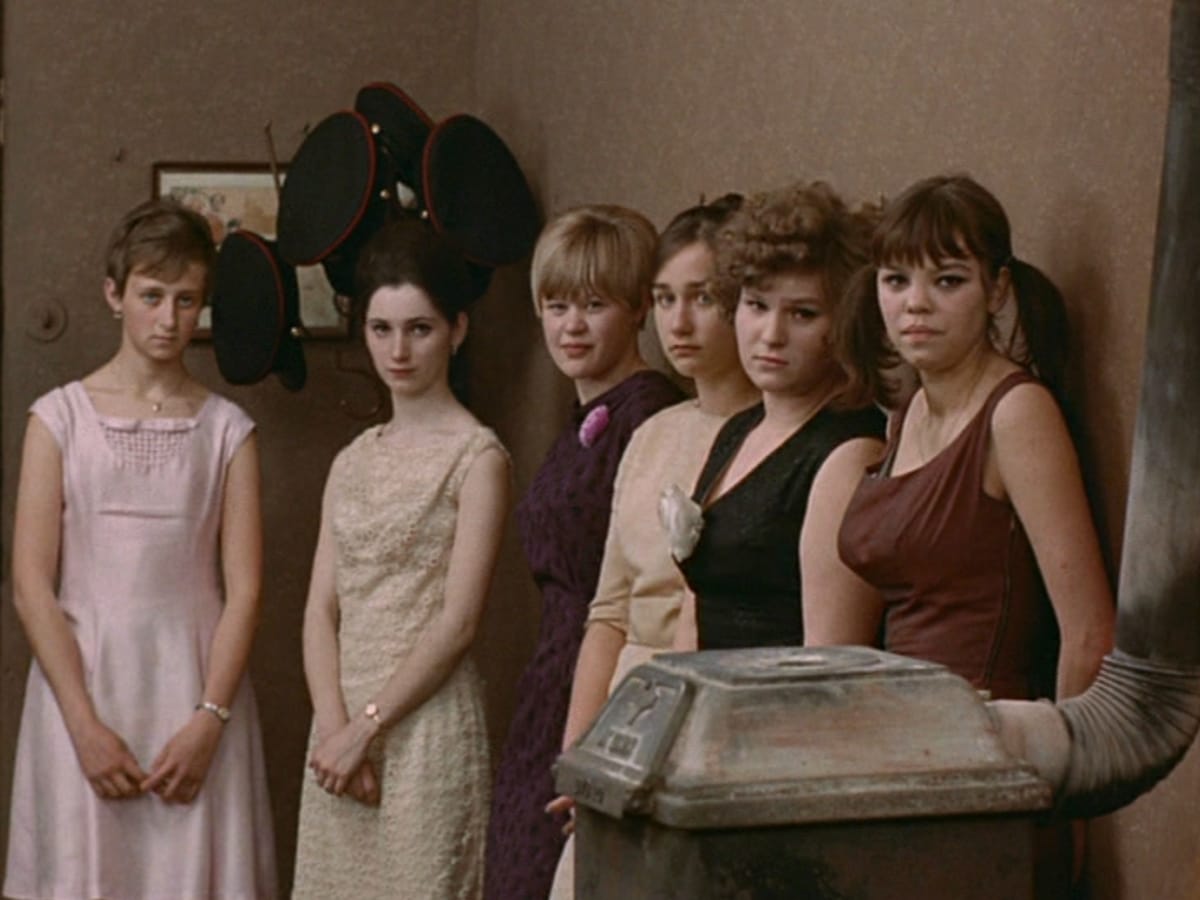The Firemen's Ball (1967)
 The Firemen's Ball was the last film Forman made before moving to the United States. Like some of his other films such The Loves of a Blonde, The Firemen's Ball shows the strong influence of both Italian neorealist and French New Wave film making techniques. It uses few professional actors and some of the characters were played by the actual firemen from the town where the film is set. Like Loves of a Blonde the was based very loosely on reality. The film won grudging approval from the state authorities. In particular, actual fire companies across the country were mad at the way Forman portrayed the fire company. Despite this, the film was a big success in Czechoslovakia... but only briefly. The film was released in 1967. In 1968, the Soviet Union invaded Czechoslovakia, putting an end to the rule of the reformist leader Alexander Dubcek and imposing a hard line repressive government that lasted until the Czechoslovak Velvet Revolution of 1989 that ended communism there. After the Soviet invasion, the film as well as most other work by Czech Wave directors. Foreman moved to the United States but other directors such as Jiri Menzel (director of Closely Watched Trains, 1966, one of the most widely seen Czech New Wave films) were forced to recant their work.
The Firemen's Ball was the last film Forman made before moving to the United States. Like some of his other films such The Loves of a Blonde, The Firemen's Ball shows the strong influence of both Italian neorealist and French New Wave film making techniques. It uses few professional actors and some of the characters were played by the actual firemen from the town where the film is set. Like Loves of a Blonde the was based very loosely on reality. The film won grudging approval from the state authorities. In particular, actual fire companies across the country were mad at the way Forman portrayed the fire company. Despite this, the film was a big success in Czechoslovakia... but only briefly. The film was released in 1967. In 1968, the Soviet Union invaded Czechoslovakia, putting an end to the rule of the reformist leader Alexander Dubcek and imposing a hard line repressive government that lasted until the Czechoslovak Velvet Revolution of 1989 that ended communism there. After the Soviet invasion, the film as well as most other work by Czech Wave directors. Foreman moved to the United States but other directors such as Jiri Menzel (director of Closely Watched Trains, 1966, one of the most widely seen Czech New Wave films) were forced to recant their work.
As in other Czech New Wave films, most of the characters in the film are not villains. They are well meaning and have good intentions. But their good intentions are thwarted by both their own needs and the rigid structures of the social system. Like City Lights, The Firemen's Ball is a comedy, meant to entertain. But like City Lights it also has an important social message. In this case, it is that people, despite individual intentions, cannot be decent unless the social system in which they live is at least somewhat decent.
Most everyone in Firemen's Ball is (or at the time of the movie was) either an amateur actor or had no acting experience (except perhaps in other Forman films).
Jan Vostrčil (1903-1985) was a musician, band leader for a local brass band in Kolín, a small town east of Prague. Ivan Passer (1933-2020), another New Wave film director who worked with Forman and, like Forman was later to come to the US, saw him and recommended him to Forman. Vostrčil was in Loves of a Blond and went on to play in several Czech films after Firemen's Ball.
Josef Šebánek (1915-1977) was, like Vostrčil, a complete amateur. He held various blue collar jobs before a connection through a family friend led him to Forman. Šebánek went on to have a starring role in another very popular movie called Ecce homo Homolka, (1970) the cast of which also included Forman's twin sons.
Here's a link to my analysis of the film (required).
Next: Cartoons